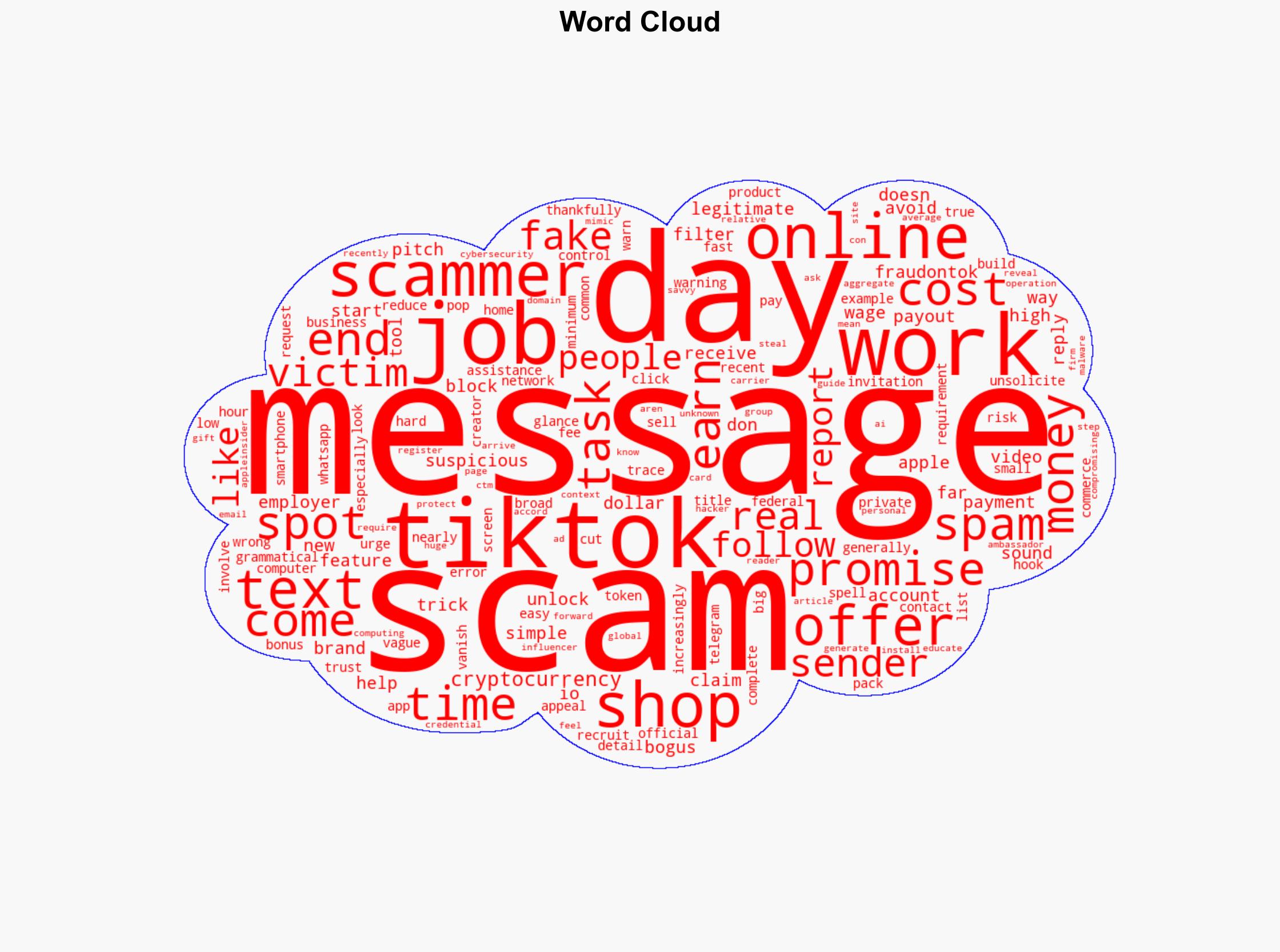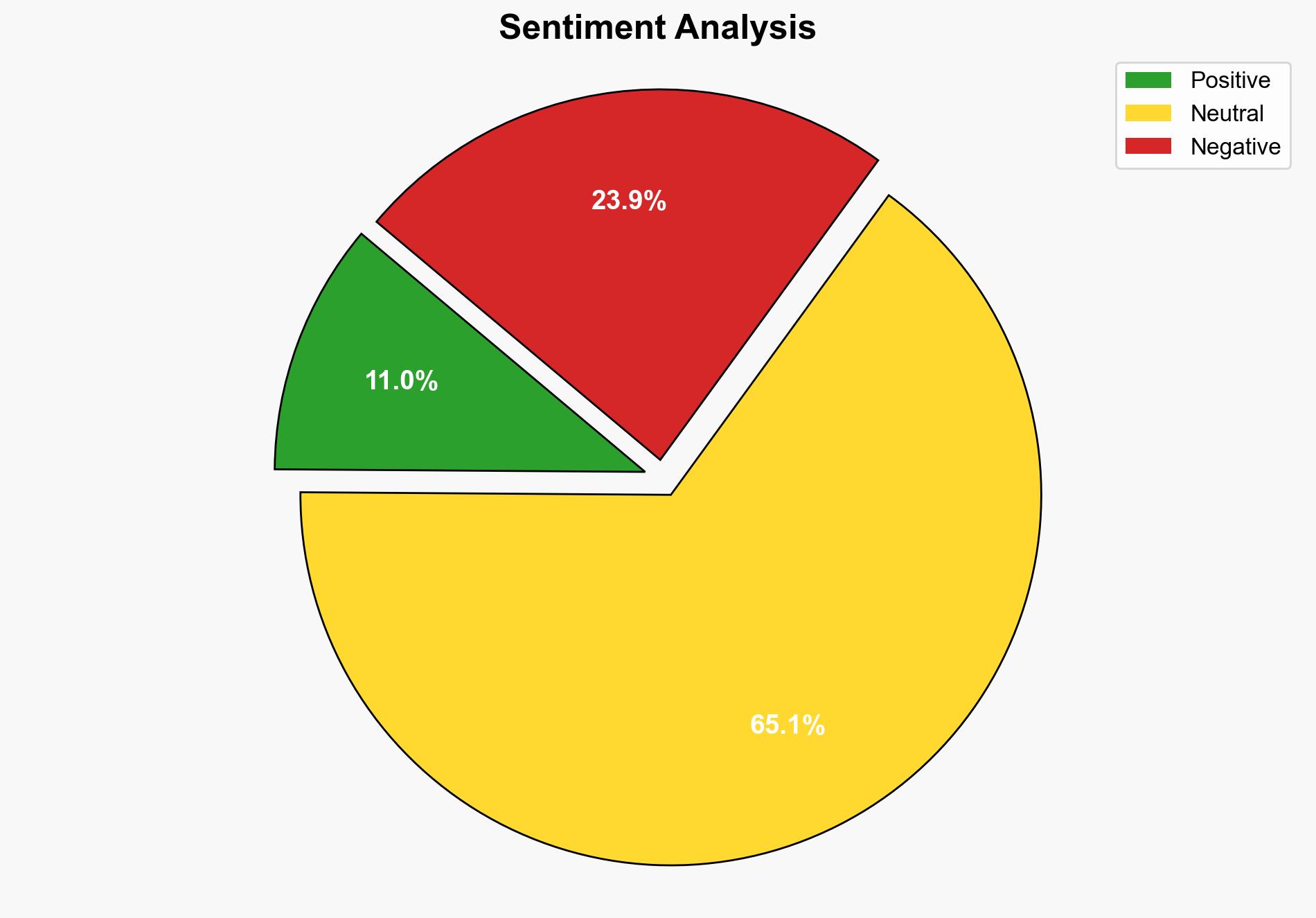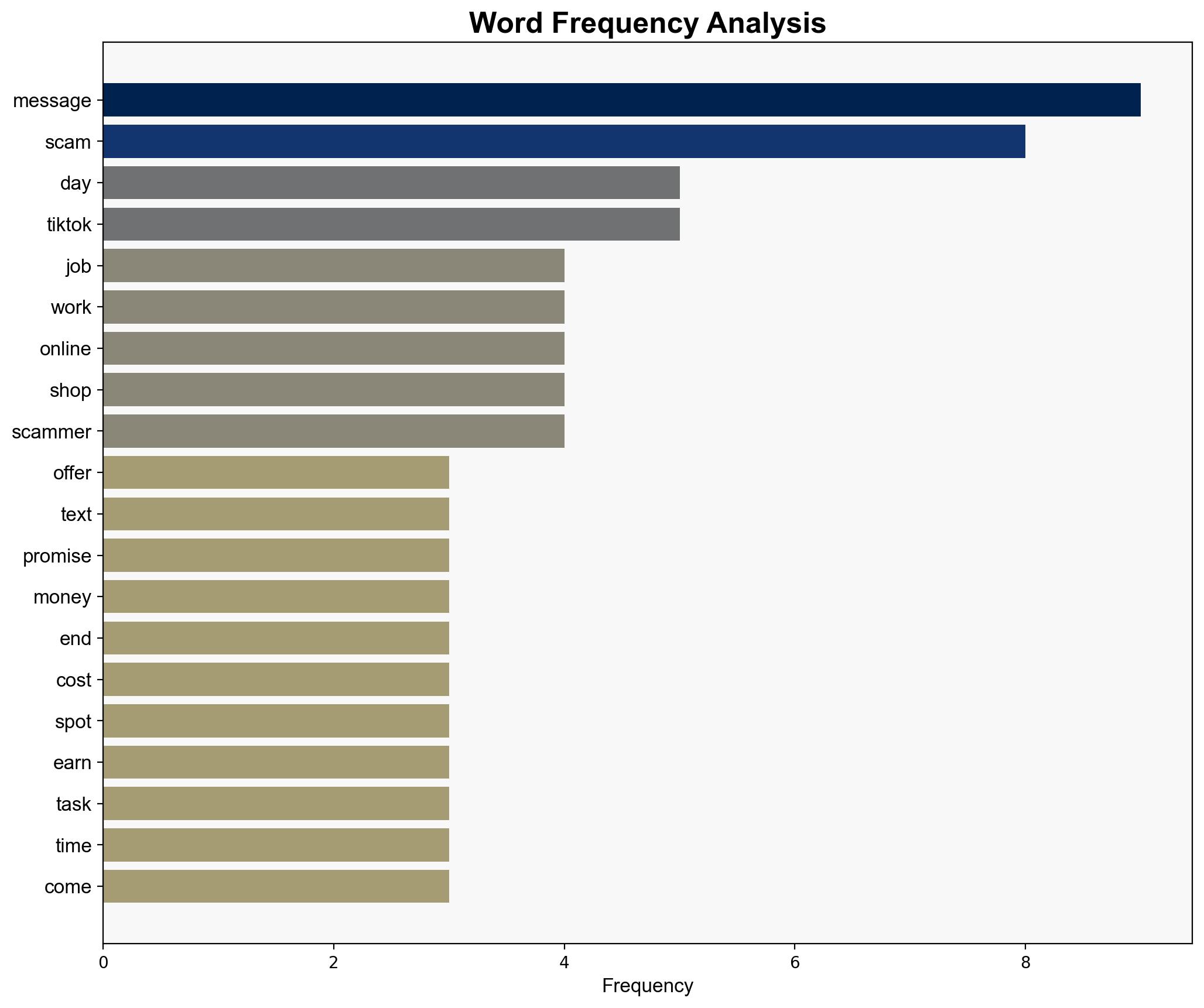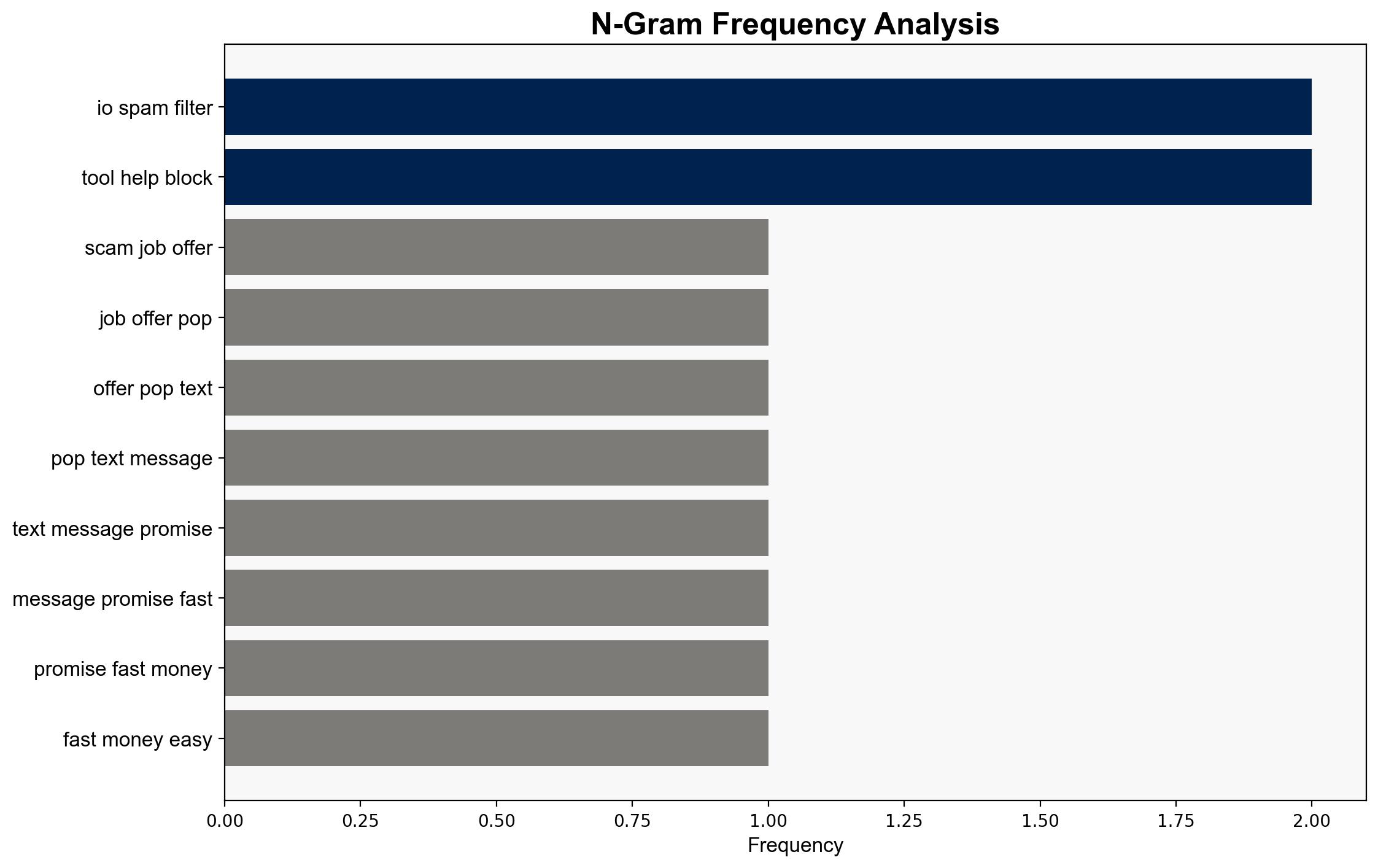Nobody is going to send you unsolicited messages for remote work – AppleInsider
Published on: 2025-08-08
Intelligence Report: Nobody is going to send you unsolicited messages for remote work – AppleInsider
1. BLUF (Bottom Line Up Front)
The most supported hypothesis is that the increase in scam job offers via unsolicited messages is part of a coordinated global cybercrime operation exploiting the popularity of platforms like TikTok. Confidence Level: High. Recommended action includes enhancing public awareness campaigns and improving cybersecurity measures to detect and block such scams.
2. Competing Hypotheses
1. **Hypothesis A:** The surge in scam job offers is primarily due to isolated actors exploiting current economic vulnerabilities and the widespread use of digital communication platforms.
2. **Hypothesis B:** The scam job offers are part of a larger, coordinated effort by organized cybercrime groups, such as the FraudOnTok group, leveraging AI and social media to execute sophisticated scams.
Using the Analysis of Competing Hypotheses (ACH) 2.0, Hypothesis B is better supported due to evidence of organized operations, such as the use of AI-generated content and the registration of fake domains, which suggest a level of coordination beyond isolated actors.
3. Key Assumptions and Red Flags
– **Assumptions:** It is assumed that the majority of these scams are financially motivated and that the perpetrators are external to the victim’s region.
– **Red Flags:** The use of AI-generated content and fake domains indicates a high level of sophistication. The reliance on private messaging apps for communication suggests an intent to evade detection.
– **Blind Spots:** There is limited information on the geographic origin of these operations and the full extent of their network.
4. Implications and Strategic Risks
The proliferation of such scams could undermine public trust in digital communication platforms and e-commerce, potentially leading to economic repercussions. If left unchecked, these scams could evolve into more complex cyber threats, targeting critical infrastructure or sensitive data. The psychological impact on victims, including financial loss and erosion of trust, could also have broader societal implications.
5. Recommendations and Outlook
- Enhance public awareness campaigns to educate users on identifying and avoiding scams.
- Strengthen cybersecurity measures, including AI-driven spam filters and domain verification processes.
- Encourage collaboration between tech companies and law enforcement to track and dismantle organized scam networks.
- Scenario-based projections:
- Best Case: Effective countermeasures significantly reduce scam incidents, restoring public trust.
- Worst Case: Scams evolve into more sophisticated cyber threats, causing widespread economic and social disruption.
- Most Likely: Continued prevalence of scams with gradual improvements in detection and prevention.
6. Key Individuals and Entities
– FraudOnTok group: Identified as a key entity behind the coordinated scam operations.
7. Thematic Tags
national security threats, cybersecurity, cybercrime, digital communication, public awareness




